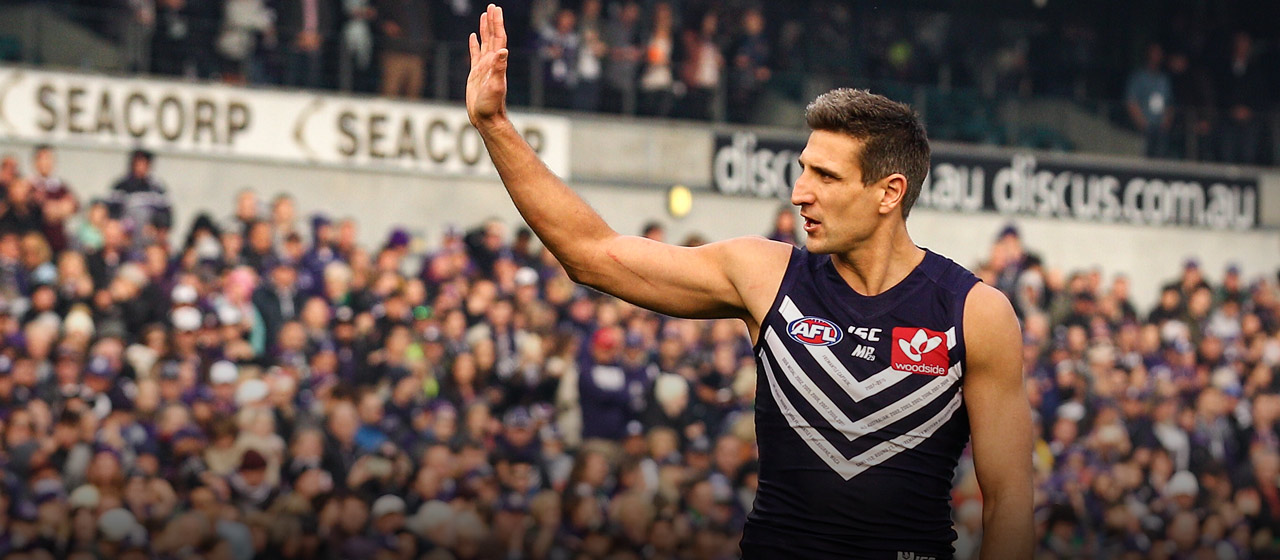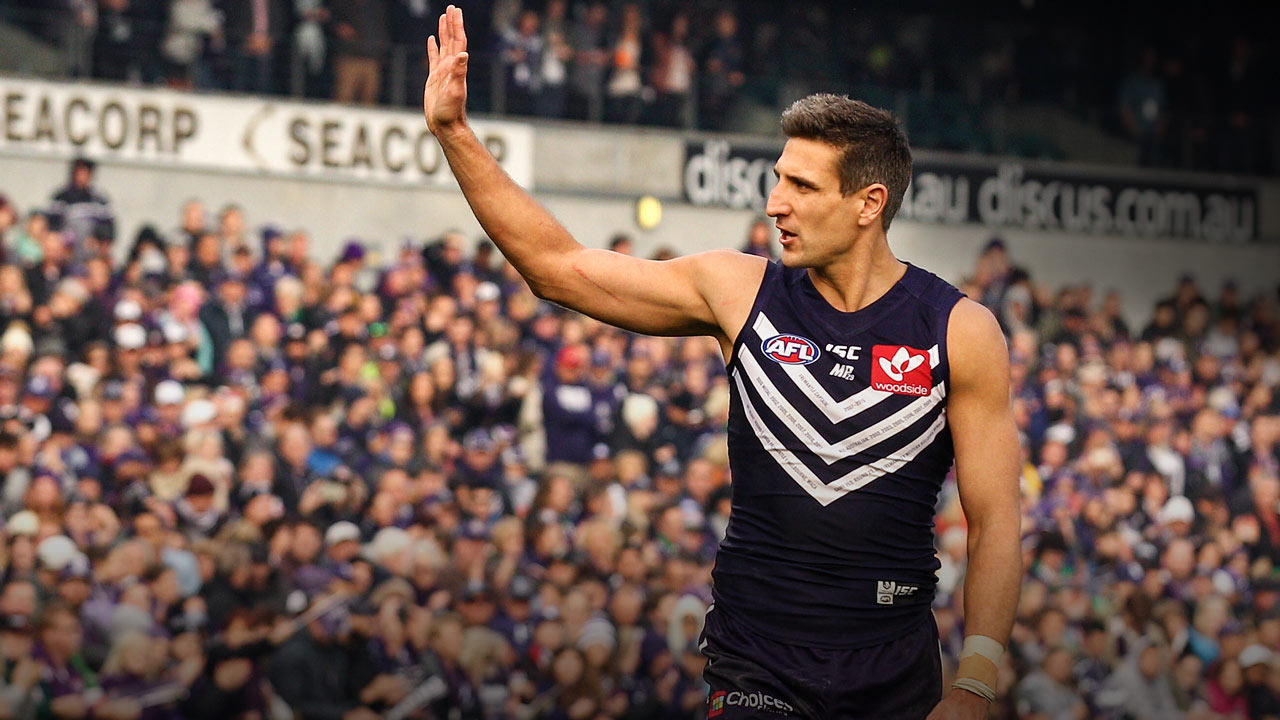AFL
What sport taught me
Many people have espoused the similarities between business and sport. And it’s true there are many. But there are also some key differences.
The similarities lie at the heart of interacting with human beings. In a football club environment, there are over 50 people drawn from all walks of life with different ideals and beliefs. They are no pre-requisites to play or coach the game – no level of high school or university degree needed. As such, players are all brought together from a variety of backgrounds in order to pursue a common purpose.
It’s not dissimilar in the corporate world. Despite the individual motivations, you ultimately have a common goal to achieve and must deal with human interactions of all types, from all walks of life.
You share experiences of success, adversity and failure, of giving and accepting feedback, of holding people accountable, needing to display integrity and influencing people; and these are often the same in the sporting environment.
The two main differences in the sporting arena are that it’s largely someone’s absolute passion they are living on a daily basis, as well as it being easier to identify and rectify what’s going well or poorly.
In business, while you’d hope many are pursuing a career and life they have always wanted to, from what I hear, it’s often not the case. On the other hand, athletes frequently say they have this immense feeling of always wanting to ‘play the game’; a true sense of belonging in their chosen sport.
There is also more of a lag time in business; the exact reasons for success or failure don’t flow as readily or easily as they do in sport.
There are actions that you can employ to hold people accountable more easily in the sporting context because actions are so identifiable, whereas in business, it takes more time before you recognise what really needs doing. It can be impossible even with the finest of tooth combs to know what actions to take.
what makes a leader
I retired at the end of the 2016 season and amongst my business and media commitments, I often present to corporate teams, where I share my experiences from the sporting world.
When I speak, people are often fascinated about how inclusive and transparent sporting teams are. The people in the audience generally come from larger organisations with hundreds or potentially thousands of employees, where they aspire to provide an open workplace in order to empower and enable their team members.
In large organisations, the bigger picture or vision, and the specific ways to achieve that is often lost – whereas in a team of 10 to 40, it’s easier to communicate what’s actually happening. Within sporting teams, the approach can be less complex, more personable.
There is more of a lag time in business; the exact reasons for success or failure don’t flow as readily or easily as they do in sport.
People in the corporate world are also fascinated by the high demand and expectation that the sporting world has for its young people to live such a disciplined lifestyle and become leaders at a really young age. But it’s all just a choice. As Dockers coach Ross Lyon used to say, ‘Do you choose the easy path or hard path – discipline vs indulgence’.
With regard to leadership, one thing I’d say is that there are leaders, and there are those that actually lead. We follow people not because we have to, but because we choose to.
The rascal in the schoolyard who influences people a certain way is a leader, and equally, the school prefect who does everything the teacher says is also a leader. Both have influence over others.
Another important factor with leadership is that not everyone wants to be a leader, and that’s OK, because there have to be followers. Yes, everyone has the ability to lead; you see something and you do something about it – that’s leadership, but you do need people who will follow.
People who one can unite and inspire. Those who one can show vulnerability to, and not have it used against them.
Ultimately though, the best leaders are the people who model the behaviours your team aspires to, who hold others accountable, who perform consistently and who have unwavering integrity.
They often do all of this when people aren’t watching – that’s when true leaders stand up.
If you are interested in leadership, ask yourself two important questions. Do you have the character that people can trust? And, do you have the competence needed in your role? If you can answer both confidently, you’ll be well on your way.
THE BUSINESS OF INSPIRING SUCCESS
Post retirement, I’ve been lucky to have interests in business and the media to distract me from what I may be missing out on.
I’m an investor and business and commercial manager with PMY Group and work with Channel 9 and Fox Sports.
I’m also co-founder of PickStar, alongside James Begley, who played 61 games for St Kilda and Adelaide from 1999 to 2005. We started conversations about the business in 2013.
James and I knew each other from our early days of playing football against each other in Adelaide. We went our separate ways and met up again in 2007 when he was running some leadership and development programs with corporates and the Fremantle Football Club.
It was when he was out doing corporate facilitation that he came to understand how stories of high performance and team dynamics in sporting teams held weight with corporates.
The best leaders are the people who model the behaviours your team aspires to… They often do all of this when people aren’t watching – that’s when true leaders stand up.
In the past, if people wanted a sports star to attend an event, activate a social media campaign, appear at a birthday party or give a keynote address, it has been quite hard to navigate such a simple idea.
So that was the nucleus of the business: wouldn’t it be great to have a platform where you can access any athlete, for any budget, in any location that was agnostic to all talent management groups? To provide more opportunities to athletes and solve the demand for sports stars by opening up what is a fragmented market.
Pickstar’s two-sided marketplace solves that problem. We don’t represent athletes, the system just connects athletes with commercial opportunities.
And we’ve now got some technology behind us that assists us to quickly identify the right sports star for a particular event or marketing opportunity. All people have to do is submit an opportunity request into the website, and the athlete gets notified on his or her device if they can attend and the process goes from there.
Even if people don’t know exactly who they want, they simply put in a brief and a budget and the system finds the right athlete from there – whether it’s hockey, netball, athletics, basketball, AFL, rugby or badminton. It’s that simple!
Just launched! Our new platform that innovates and automates the process for finding and booking sports stars for events, marketing and fan experiences. It's a new era, driven by technology and transparency. Visit: https://t.co/qvk0wtgnZa
#sportsbiz #SportsTech pic.twitter.com/duME9my47p— PickStar (@PickStarAU) June 18, 2018
knowing when not to work
I always had an eye to getting into in business when I finished my career completing two degrees while playing – a Bachelor of Science and a Masters in Business Administration.
I think focusing on both football and uni at the same time taught me how to manage my time pretty well – having a structured routine and being disciplined enough to stick to it.
I’m lucky that I have a great support from my wife Lauren and really good people around me to help manage other expectations. So whatever I was preoccupied with, I was always present and able to achieve what I needed to be achieved. I think being able to compartmentalise was critical when I was playing and that has transpired into my post-AFL life.
There’s a great quote from Thomas Edison that says: ‘Opportunity is missed by most people, because it is dressed in overalls and looks like work’. I like that quote.
Not that my life is all hard work! I always tried to check out, socialise and find some down time.
It’s important to me to have balance in my life and enjoy myself. That’s what I tried to achieve when I was playing, and now more than ever with a young family and variety of things going on, it’s so crucial to have a balanced lifestyle.
Away from work, I still try to stay as fit as possible. Most weeks, I try to do some exercise a minimum of three times a week.
The funny thing given my physical training as a professional athlete for 17 years is that I never fully appreciated the mental relief and stimulation of physical exercise until I stopped. I openly admit to feeling a bit anxious or grumpy at times, until I go for a run or do a gym session and get the release of endorphins.
That is a critical piece for me staying healthy and on top of my game.
FAILURE IS PART OF THE JOURNEY
Another commonality of successful people is wanting to achieve excellence in every aspect of life. And while that is an aspiration of many, it’s also true that you will inevitably fall short and fail at times.
One asterisk on my career is that I didn’t win a premiership. Despite individual success, 16 finals appearances and one grand final in 2013, which was the only grand final the Fremantle Dockers have made in the club’s short history, I ultimately fell short.
Upon reflection, Hawthorn’s 15-point margin seems so close, particularly when we would have liked to have made more of our opportunities that day – we kicked 8.14!
But I certainly don’t live in regret. It’s something I only had one opportunity at and missed out. I’m incredibly proud of that group of players I worked closely with both prior to and after that game and in the end we didn’t quite get there.
It stings, but we all move on.

There are many lessons to be learned. One is to embrace grand final week better and be open to the various challenges that throws at you.
Yes, training on the MCG and having some extra shots at goal may have been helpful. The Melbourne teams are always going to have an advantage there, but that’s just the reality.
I don’t lie awake at night thinking about that game. Nor any from my career. I did that enough while I played!
The simple lesson is that you sometimes only get one opportunity in life at your ultimate goal – so you’ve got to take it.
Some days it just doesn’t go your way, but the biggest failure is never to take a risk or put yourself out there both physically and emotionally. Athletes do that every day – they put their bodies and minds on the line at every turn. That’s real courage. When there is no guarantee of success.
It’s not dissimilar to leaders in business who are constantly putting themselves on the line.
Just because you fall short, doesn’t mean you haven’t succeeded.
More about: Business | Fremantle Dockers | Grand Final | Leadership | Sponsored






 Load More
Load More